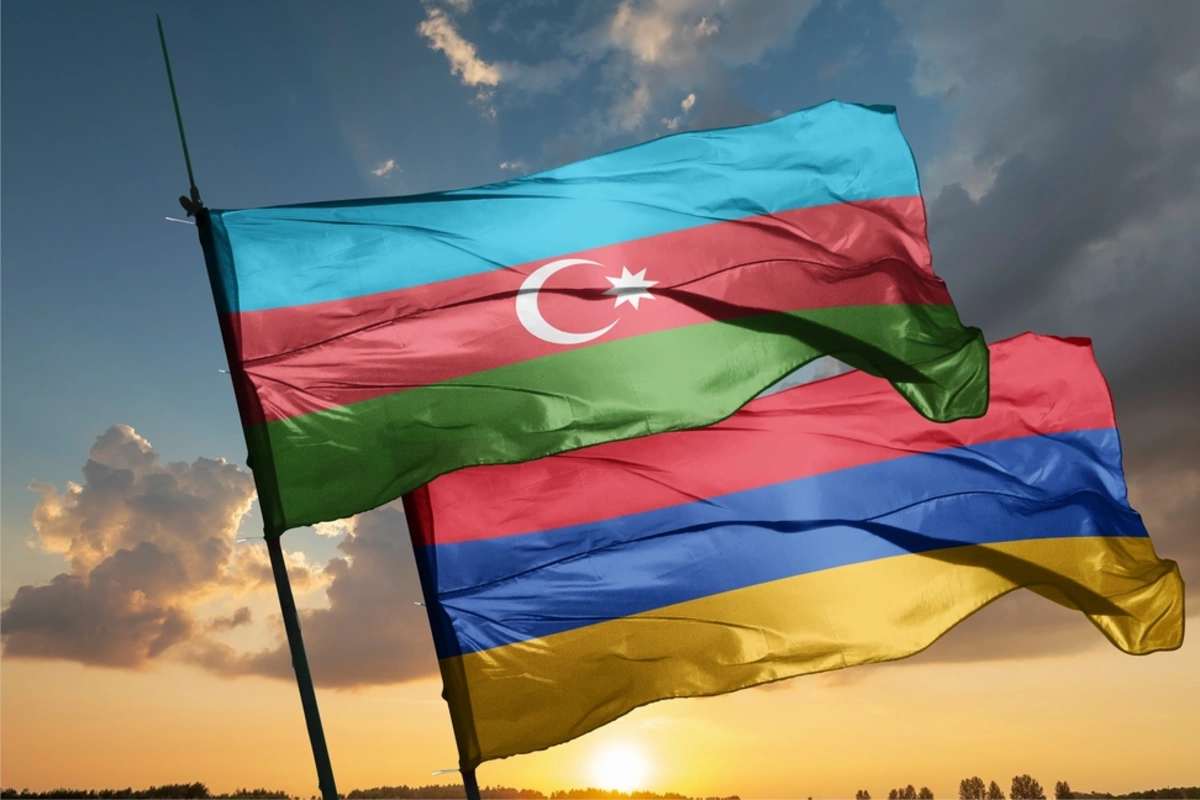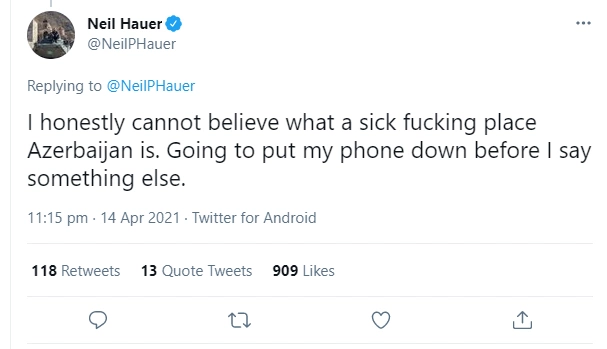
Nailya Bentley gets that people have stereotypes, but when does a stereotype turn into racism? In this article, she reflects on her experience as an Azerbaijani on Twitter, calling on Neil Hauer, “Ani Wandaryan”, Ana Kasparian, and even the singer Cher to cool their heels.
Image: Svet photo/Shutterstock
I recently re-discovered the joys and fun of Twitter. I have had the account for ages but wasn’t following much. Yet, in the last year or so, probably because of the last year’s events in Karabakh, I got back into it.
My Twitter interests can be easily categorized into three main areas of interest:
• I respond to people who are being rude and nasty about my home country
• I respond to anti-vaxxers. (Candace Owens (@RealCandaceO) is one of my favourites, with her crazy anti-vaxxing statements and claims that Satan is real.)
• I share silly jokes when I am in a silly mood
A while back, I’d been advised by a friend that “Twitter is not for jokes or social life updates; you should only use it for fighting with Armenians.” That was a light-hearted statement, but sadly, I notice that fighting does seem to occur on Twitter more often than on any other social platform I am on.
Speaking of fighting, I try my best to avoid getting dragged into a fight, except with a few individuals who are my personal peeves - people who say such irritating stuff that I simply cannot resist.
One of those is Ana Kasparian (@AnaKasparian), an LA-based journalist working for an independent news outlet called The Young Turks. Yes, Turks. Isn’t it ironic as Alanis Morissette would sing? Ana, due to her Armenian roots, uses her professional position to spread hatred not just towards Azerbaijan but also Turkey, and so openly that it is at times difficult to believe. Considering that the program's founder is a Turkish-American, makes belief doubly difficult.
Ana belongs to a particular radical group within the Armenian diaspora in the US. It’s a big, rich and powerful community, amongst which many project aggressive, unwavering hatred from the comfort of their LA homes. They add fuel to the conflict, far away from the real lives of people on either side who suffer from war. Of course, not all those in the diaspora are the same, as there are people within that community that work hard to build bridges between the two nations. But there are many who work hard on an opposite agenda - destroying any peace that may be possible.
Another group is that of people who are neither Azerbaijani nor Armenian but feel attached (either emotionally or financially) to one of the sides in this conflict. Like this (rumored to be) American woman (@goldentent) hiding under the Armenian pseudo name Ani Wandaryan. Due to her hateful tweets about Azerbaijan and her fake Armenian name, not many people consider that she could not be an Armenian. Amongst the non-Armenians who hate Azerbaijan more than Armenians themselves is also journalist Neil Hauer, who comes up with tweets like this:
Well, you might say, what about freedom of speech? So, he says what he wants. But what about this?

Okay, when someone like Cher says, “Hell’s waiting 4 U Azerbaijani murder’s!!!” I find it mildly amusing, like watching an uneducated child who can’t really form a proper sentence throw an apostrophic tantrum.
You might think a celebrity who says something like that about a nation should, in theory, get “cancelled” by the cancelling crowd - but she will not be, as some nations, it seems, are acceptable to insult and abuse.
But for someone like Hauer, who claims to be a professional journalist? To call a country and people f**king sick? And to be invited to write for world publications like The Moscow Times soon afterwards?
How does this happen in a world that’s otherwise so heavy with political correctness? Are Azerbaijani people not enough of a minority to get the protection of the political correction police?
Watching “And Just Like That” last night (the reboot of HBO’s “Sex and The City), I was shocked when Carrie (played by Jessica Sarah Parker) was complaining to her Indian-American friend about a neighbour downstairs. “How can she be so young and afford such an expensive flat,” Carrie wonders.
“Oh,” the friend responds, “she is probably a Russian prostitute.”
Hold on a moment!
Coming from an Indian character, what would happen if, in an HBO TV series like that, someone suggested it was probably an Asian prostitute? Would that fly past the PC youth out there? Probably not.
I appreciate that we all have stereotypes. Not all admit to having them, but of course, we all do.
And I also appreciate that people out there have a certain image of Azerbaijan and its people, especially those connected to Armenia. A lot of terrible things have happened between our two countries.
I cannot change that, just like I cannot change anti-vaxxers, and not for the lack of trying. But often, I think that these kinds of misconceptions and a lack of trying to see the other’s point of view is what causes the never-ending fighting.
I saw another thread on Twitter recently. January 20 was the anniversary of the Russian army coming brutally into Baku back in 1990. Tanks drove straight over scores of people who tried to protect the city gates. Some of us are old enough to have been there, to remember exactly what it felt like, exactly how it was. But even then, the recollection of events is very different, coming from different individuals. Many of the Twitter Azerbaijanis who recalled these horrors shared their memories. A few called the Russian army ‘murderers.’ “They came and shot at every shadow, killing innocent people, and after we had brought food to the tanks!” someone said.
But I remember seeing those Red Army guys. Most of them were terribly young. Scared. Away from home. In an unfamiliar place about which they had probably been told horror stories as though Azerbaijan was some kind of scary ISIS-like state. Yes, there were horrible incidents when innocent civilians died, and yes, some soldiers shot at balconies and moving shadows. But it is easier to avoid thinking about them as human beings, isn’t it? Just blame them blindly, hate them all, hope they all burn in hell.
I watched those young soldiers from our balcony in 1991. I saw how they were frantically glancing around in fear. How the commander shouted at them to not slow down. How they ran, skinny and lost, not knowing when and where to expect attacks from “evil Muslims.” That’s what they thought. Like our bluntly biased Neil on Twitter, they simply had not thought of us as regular people.
Yet I hope that some of us, on every side, in every corner of the world, whether anti-vaxxer or not, right or left, Armenian or Azerbaijani, has some civilized decency within them… an ability to have a conversation on social media without hatred, abuse and generalizations. As someone pointed out to me recently, it’s a great shame that a peaceful, innovative group like the Armenian-Azerbaijani dialogue platform Bright Garden Voices (@brightgardv) has fewer than 2,000 followers, while Ana Kasparian, with her hysterical shouting, has more than 400k. But never mind, groups like BGV do at least give us hope that Twitter could be used for restoring peace and not just spreading hatred.
Share on social media